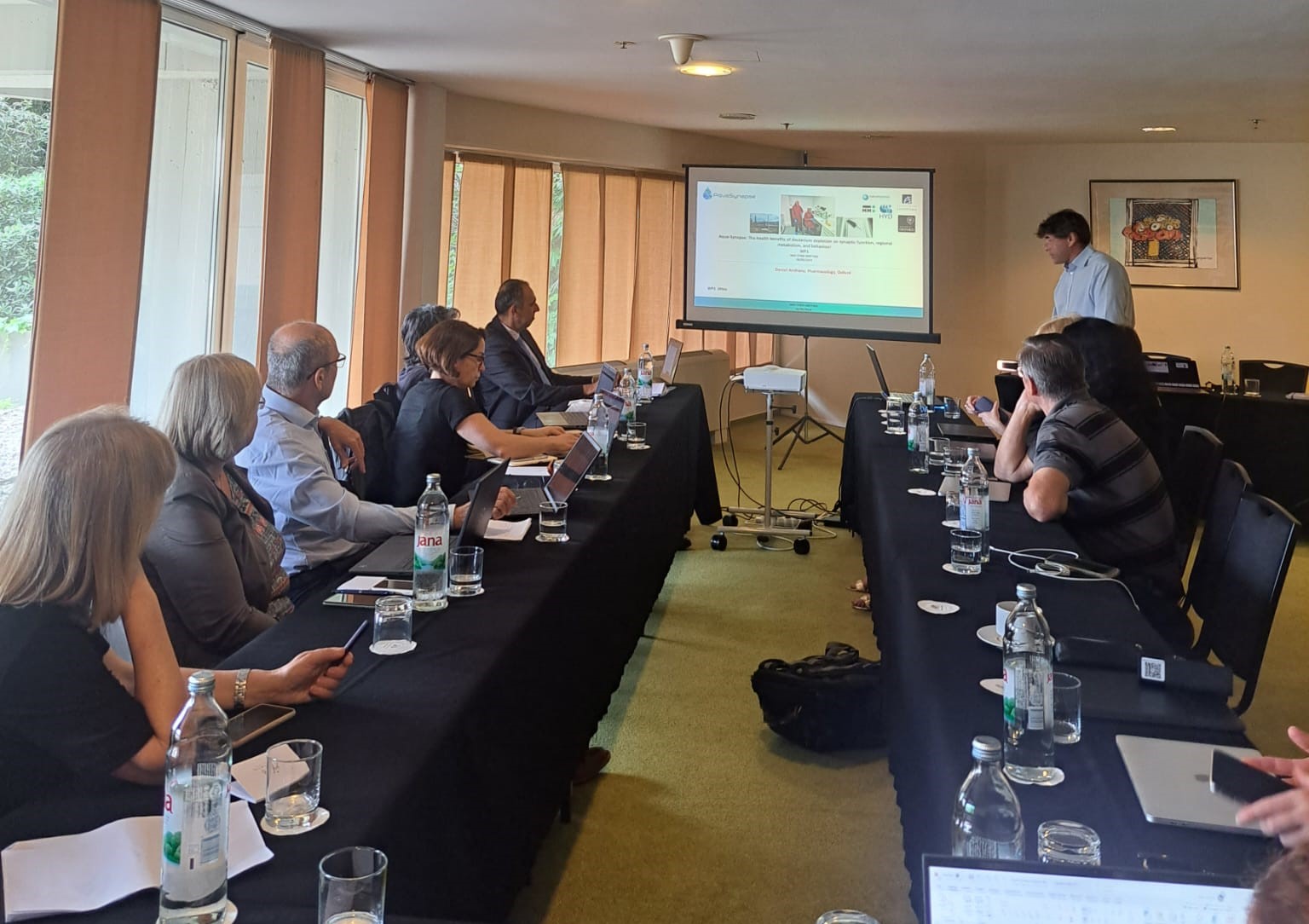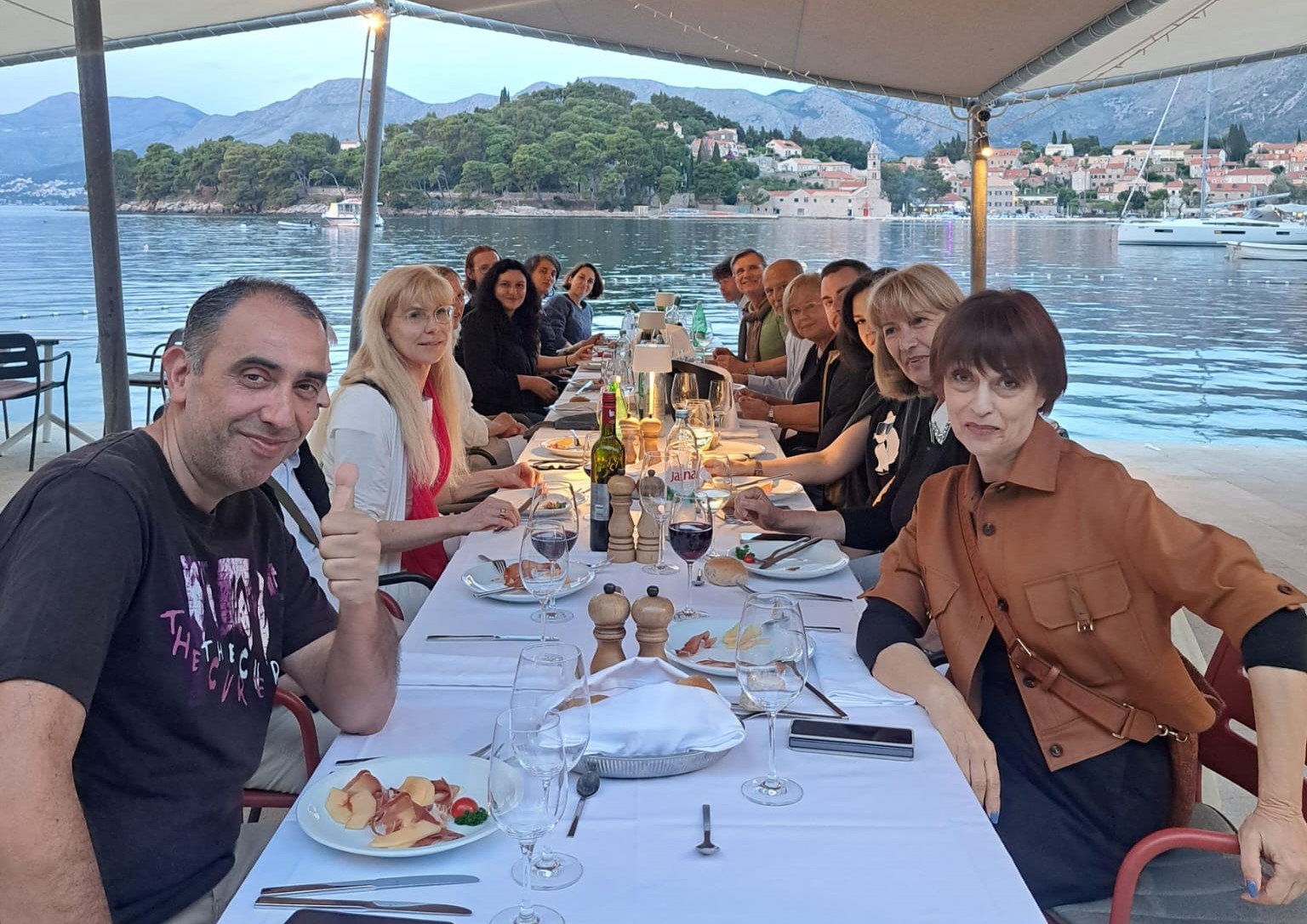News
Aqua Synapse Mid-term Meeting
On the 27th and 28th of May, the Mid-term Meeting of the Aqua Synapse project took place in Cavtat, Croatia. Aqua Synapse is a project funded by the European Executive Research Agency of the European Commission, and coordinated by Professor Sergiy Lyubchyk from Lusófona University.
The main idea of the Aqua Synapse project is to establish the mechanistic basis of the positive health effects of deuterium depleted water. The isotope content of drinking water has been shown to possibly have implications to many diseases, such as cancer - while high concentrations of deuterium may induce mitochondrial dysfunction, and even lead to cell death, lower concentrations (deuterium depleted water), however, appear to have positive effects in human health and seem to represent a safe intervention with few, if any, side effects – but remains unclear at what concentrations the positive metabolic and behavioral effects become apparent. The project aims to verify this hypothesis and develop mechanisms to measure the health benefits of deuterium-poor water.

In the mid-term meeting, the main progresses of the project were presented by all the teams of the Consortium related to the Work Packages (WP) of their responsibility, including: deuterium metabolic spectroscopy and deuterium metabolic imaging (WP1); deuterium impacting excitatory/inhibitory (E/I) balance in a human neuronal network model system (WP2); evaluation of effects of deuterium depletion in animal models of metabolic syndrome (WP3); evaluation of impact deuterium depletion in animal models of aging (WP4); production of deuterium depleted and control water samples, control of deuterium content in experimental tissue (WP5). The progresses of Lusófona University’s coordination team on project management were also discussed, particularly related to the communication and dissemination plan of the project and the data management plan (WP6).
All teams from the Consortium were represented in the meeting, either in presence or online, namely: COFAC (Portugal), University of Oxford (England); University of Würzburg (Germany); Institute of Molecular Medicine João Lobo Antunes (Portugal); HYDLLC for Cancer Research and Drug Development (Hungary).


